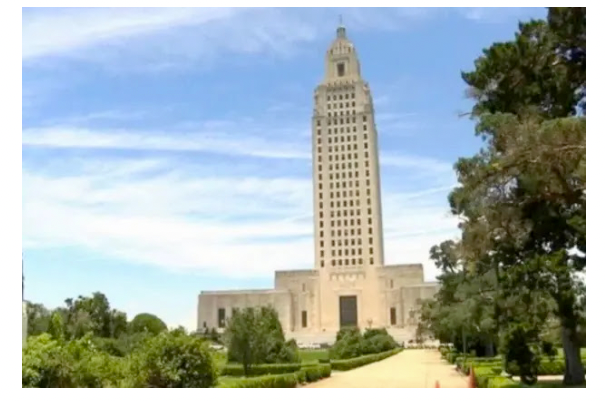The House Appropriations Committee on Monday approved House Bill 571, sponsored by Speaker Clay Schexnayder, R-Gonzalez, to address some of the concerns from opponents who have criticized a lack of community input and local revenue sharing, and potential environmental risks, particularly to drinking water.
Carbon capture and sequestration involves capturing carbon dioxide emissions, then compressing and transporting the gas to store it deep underground, typically in salt domes, depleted oil or gas fields, or other stable formations with high capacities.
Louisiana legalized carbon capture and storage in 2009 with the Louisiana Geologic Sequestration of Carbon Dioxide Act. The technology is integral to the state’s Climate Action Plan released last year that aims to reduce greenhouse gas emissions to net zero by 2050.
HB 571 would increase notification requirements for carbon dioxide well permits to include parish governments, and would mandate public hearings in each parish affected. In addition, the bill would require companies to conduct an environmental analysis for permits, and to notify parishes of that activity, as well.
Other provisions would require quarterly reports from Class VI injection well operators and would require notification within 24 hours when injections endanger underground drinking water, or when an injection system malfunctions.
The bill would direct 30% of funds collected from projects on state-owned lands or water bottoms to parishes included in the agreement, dividing those proceeds by the proportion of land involved when more than one parish is included. HB 571 further increases the time companies must monitor facilities after completion from a decade to 50 years, and increases fees from a maximum of $5 million per operator to $5 million per facility, with a total of no more than $10 million per operator.
The House Appropriations Committee approved the measure with no questions or discussion. Schexnayder told the Committee on Natural Resources and Environment last month HB 571 was motivated by constituents in his district concerned about a lack of notification and revenue from the projects.
“This is not a bill that’s in favor of one or the other,” Schexnayder said, referring to for or against carbon capture. “It’s an insurance policy for you back home.”
Other carbon capture bills introduced this session include HB 10, to prevent operators from using eminent domain to gain properties for wells; HB 35, to ban the projects in St. Helena Parish; HB 120, to prohibit structures from protruding above lakes Maurepas or Pontchartrain; HB 267, to impose a 10-year moratorium on projects beneath Lake Maurepas and the Maurepas swamp; HB 308 to require environmental impact statement for wells or pipelines beneath Lake Maurepas and the Maurepas swamp; HB 312, to remove a cap on liability for carbon sequestration facilities; and HB 454, to require an election before projects can move forward.





